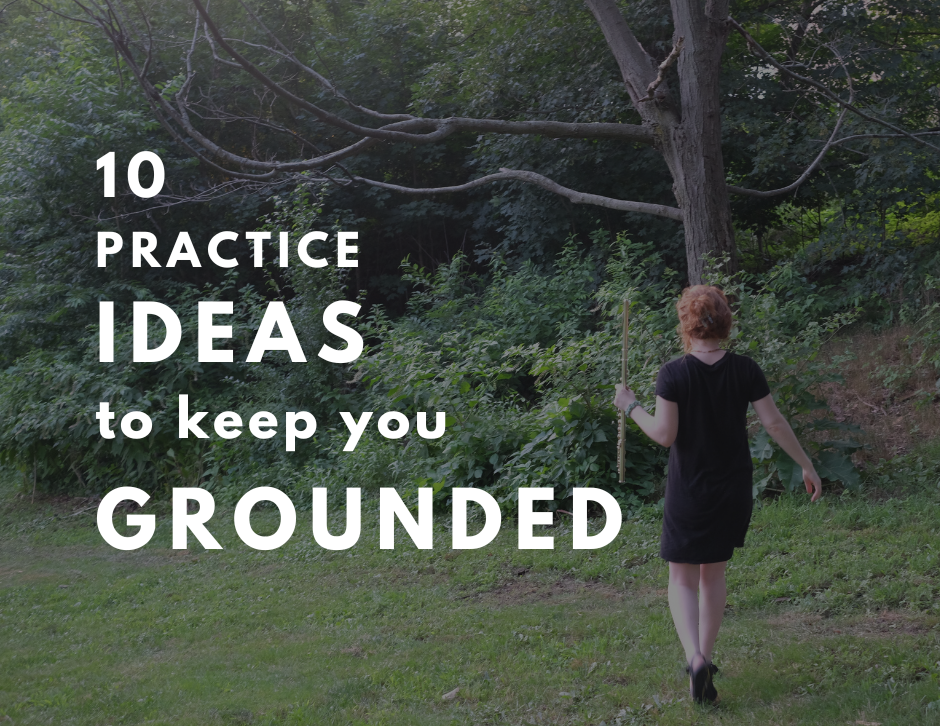6 Tips for Practicing When You’re Tired
- Ali Hoffman
- Mar 12, 2021
- 4 min read
Updated: Mar 19, 2021

We’ve been in this pandemic for a year. Some of us are uninspired with our instruments and some of us are drained in general. No matter what kind of tired, a majority of musicians have had trouble with traditional, productive, and “ideal” practice sessions, or just picking up our instruments at all. If this describes you, you are not alone, and it is very okay. Here are some tips for practicing when you’re low on energy, motivation, or everything.
#1 Don’t.
This idea is probably the most important. Use this if you are especially exhausted or uninspired at the moment. There is probably something else in you that needs your attention more. Do you need a bite to eat? A quick walk? A few minutes (hours, days) to sit down and recharge? If you’re still exhausted, practicing won’t do you much good. You do not need to muscle through it no matter what music school or capitalism tell you about what hard work means. You’ll know what’s best for you. If you give yourself a chance to recharge and you’re now ready to practice, try some of these:
#2 Set a timer for 5 minutes
Or 10 minutes, or 20 minutes; whatever feels doable right now. The hardest part is taking the instrument out of the case, so give yourself a small, extremely manageable goal to start. After playing for a few minutes, you might have a bit more energy and motivation to keep going. If you are exhausted when the timer goes off, refer to tip #1.
#3 Modified Pomodoro Technique
Related to #2, The Pomodoro Technique is a method of timing yourself in chunks for the sake of time management. Traditionally, it is used as a timed pattern of 25 minutes of work followed by 5 minutes of rest, alternating back and forth. Depending on how much energy you have, try a modified version of this. You might do 20 minutes of practice followed by 10 minutes of rest, or 15 minutes of practice and 5 minutes of rest, or even 5 minutes of practice and 5 minutes of rest, repeated over and over. Another variation is switching between activities: 10 minutes of practice, 10 minutes of reading, studying, or sending emails, and 5 minutes of rest. It’s often easier to get to work when we see the end in sight rather than unrealistically expecting our tired selves to practice for an unspecified long span of time. Be creative and practical. If you find that at the end of your resting period, you snooze the timer like it’s your sixth morning alarm and you can’t get up, refer to tip #1.
#4 Sit down
Ok, this one seems dreadfully obvious, but when I don’t have a chair right next to me, this doesn’t cross my mind. Get a chair. And if you’re in your living room and only have enough energy to play from the couch, play from the couch. It’s not going to be your ideal sound, but if it gets the instrument to your face, it works. However, if you find yourself slinking into your couch and closing your eyes, refer to tip #1.
#5 Take away an aspect of music
There are some aspects of our practicing that we probably shouldn’t sacrifice, but there are some things that you can reprioritize to improve other parts of your playing. Ideally, we practice with our most gorgeous tone, impeccable intonation, dead-steady tempo and rhythm, and maximum expressivity, but ideally we’re not tired either. We just aren’t machines, and sometimes we will benefit more by changing our objective. Try to improve one thing, not everything. I like to emphasize this to my students in flute lessons. Play scales at half your usual tempo for accuracy. Play etudes with zero dynamics and play everything slurred or everything tongued to go for consistency. Play your solo without rubato and expressivity to get the notes under your fingers. If you realize that your tiredness is sacrificing so much that nothing is improving, refer to tip #1.
#6 Play music that is either enjoyable or less stressful to you
Let’s say you despise scales, you don’t currently have the patience for long tones, or it will take 110% of your brain capacity to play lyrical melodies with a wide dynamic range. Save that for when you have more brain energy and try something else. 100% of our practice can’t be strictly disciplined or we will all burnout and quit. Play around. Go through a few easy etudes without a metronome to get your air and fingers moving or your favorite solo to spark inspiration. Turn on Spotify and figure out the melody of your favorite songs or just improvise in the key. Improvise over drones and let your tired brain meditate with open intervals. A few things could happen when you try out this more free version of practicing:
You get inspired, want to improve more, and end up moving into a more serious practice session.
You enjoy yourself, feel musically satisfied, and end up gaining skills and/or maintain skills on your instrument even without an intense practice session.
You can’t physically or mentally bring yourself to even do this because you are too tired, which means you should refer to tip #1.
In conclusion, you are not a machine. Don’t treat yourself like one.
Happy practicing (or resting)!




Thanks for the post. I love the advice. Sometimes I'm able to push through, and sometimes I just don't want to feel guilty when I can't.